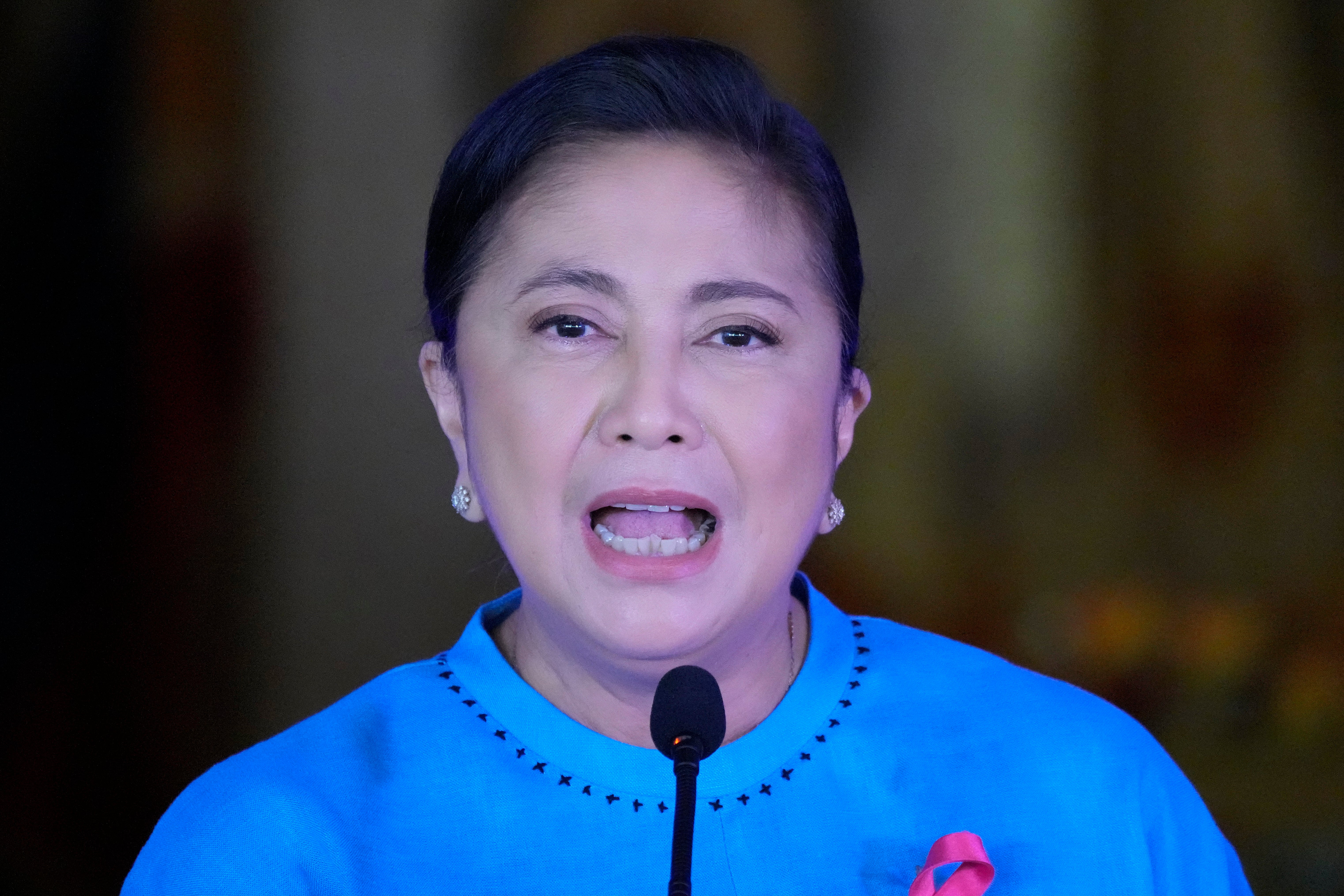Philippine VP to seek presidency, will face dictator's son
Philippine Vice President Leni Robredo, who leads the opposition, says she will run for president in next year’s elections in a long-anticipated decision

Your support helps us to tell the story
From reproductive rights to climate change to Big Tech, The Independent is on the ground when the story is developing. Whether it's investigating the financials of Elon Musk's pro-Trump PAC or producing our latest documentary, 'The A Word', which shines a light on the American women fighting for reproductive rights, we know how important it is to parse out the facts from the messaging.
At such a critical moment in US history, we need reporters on the ground. Your donation allows us to keep sending journalists to speak to both sides of the story.
The Independent is trusted by Americans across the entire political spectrum. And unlike many other quality news outlets, we choose not to lock Americans out of our reporting and analysis with paywalls. We believe quality journalism should be available to everyone, paid for by those who can afford it.
Your support makes all the difference.Philippine Vice President Leni Robredo announced Thursday she would run for president in next year’s elections in a long-anticipated decision that would bring the liberal lawyer to a potentially bruising faceoff with the son of the late dictator Ferdinand Marcos.
The opposition leader Robredo joined a growing list of aspirants for the May 9 elections after talks failed for key candidates to unite behind a single contender who would go against whoever President Rodrigo Duterte and his ruling party will endorse for the increasingly crowded race.
Robredo earlier said she may decide to run if ex-senator Ferdinand “Bongbong” Marcos Jr., whom she narrowly defeated in the 2016 vice presidential race, sought the presidency. He registered to do so Wednesday.
The president and vice president are elected separately in the Philippines, and Robredo and Duterte have had sour ties for years. She has railed against his brutal crackdown against illegal drugs that has left thousands of mostly poor suspects dead and is being investigated by the International Criminal Court
She has also hit Marcos Jr.’s refusal to apologize and express remorse over the thousands of human rights victims under his father’s dictatorial rule from 1972 to 1981.
A former legislator and social activist who fought for human rights and good governance, Robredo backed the “people power” protests that culminated in the ouster of Marcos and became a harbinger of change in authoritarian regimes across the world.
“We need to liberate ourselves from the current situation. I will fight, we will fight,” Robredo told a televised news conference where she announced her candidacy but acknowledged that she faces an uphill climb. “They have the money, machinery, an entire structure that can spread any story they want to project.”
“But any noise cannot bury the truth,” she said during her remarks, her followers repeatedly chanting her name.
Robredo, 56, is the latest key politician to declare an intention to succeed Duterte, whose six-year term, one of the most tumultuous and controversial in recent Philippine history, ends in June next year. The ailing leader, known for his brash rhetoric and expletive-laden outbursts, initially planned to run for the vice presidency under the PDP-Laban party that he leads but backed out Saturday after his popularity rating dropped and prompted him to announce his retirement from politics.
The candidacy of Marcos Jr. immediately sparked a protest by activists who angrily recalled the widespread human rights atrocities that marked the martial law era under his father. While he was registering his candidacy, more than 100 left-wing activists vowed to campaign against Marcos Jr. and burned effigies of his father and Duterte, an ally of the Marcoses
Marcos Jr. said Wednesday he was ready to face Robredo in the elections and the other contenders.
The elder Marcos died in exile in Hawaii three years after his ouster without admitting any wrongdoing, including accusations that he and his family amassed an estimated $5 billion to $10 billion while he was in power.
A Hawaii court found Marcos liable for human rights violations in 1995 and awarded $2 billion from his estate to compensate more than 9,000 Filipinos who filed a lawsuit against him for torture, incarceration, extrajudicial killings and disappearances.
Imelda Marcos and her children were allowed to return to the Philippines in 1991, and have since made a political comeback, winning seats in Congress and powerful provincial posts and laying the ground for a return to the presidential palace and the top job they felt was stolen from them.